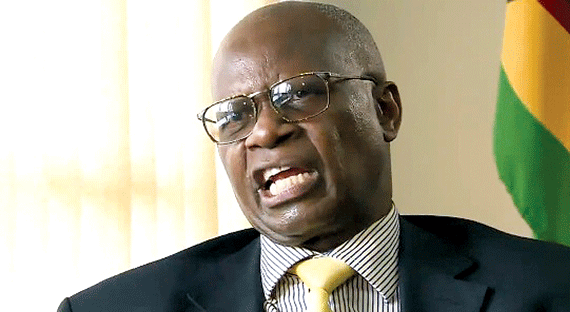
THAT the forthcoming budget would be a herculean task for Finance minister Patrick Chinamasa, was apparent.
Bernard Mpofu Staff reporter
Firstly, the source of election funding remained a tightly kept secret and as such, consequences of such funding may not be quantified.
With just 100 days after Zanu PF won the July 31 election, Zimbabwe’s economy seems to be on auto pilot despite poor economic indicators.
In the middle of this, the former Prime Minister Morgan Tsvangirai-led MDC, which had since taken the backseat after an election defeat sees an opportunity. At least another day of political relevance!
Delays by the Reserve Bank of Zimbabwe governor Gideon Gono in announcing the Monetary Policy Statement and the deferment of the 2014 national budget to either next month or next year has sent a no-good signal.
For Zanu PF, this could be a cue to go back to the drawing board and craft a document that inspires confidence.
The party, which recently launched the Zimbabwe Agenda for Sustainable socioeconomic Transformation, is now pinning its hopes on the new blueprint to turn around the economy.
- Chamisa under fire over US$120K donation
- Mavhunga puts DeMbare into Chibuku quarterfinals
- Pension funds bet on Cabora Bassa oilfields
- Councils defy govt fire tender directive
Keep Reading
Though the document has not been publicly launched, the ruling party has taken every public gathering to herald it as a panacea to the country’s economic woes.
The blueprint joins other reform programmes introduced by the government since independence, but never implemented.
Critics and the MDC-T, however, contend that this procrastination could be a sign of desperation as Rome continues to burn.
The MDC has seized the moment, proposing a stakeholders’ meeting which seeks to come up with urgent measures required to stimulate economic growth.
Signs of a frail, limping economy are already evident. Industry is in doldrums and agriculture is no longer the mainstay of the economy.
A recent report by the Confederation of Zimbabwe Industries showed that capacity utilisation in the manufacturing sector had dipped to 39,6% this year from 44,9% recorded in 2012.
Amidst uncertainty around mineral prices and recovery in the agricultural sector, the baseline projections according to the World Bank forecast economic growth at 4,2% in 201 4.
Analysts say the wait-and-see attitude that gripped the markets resulted in broad money supply losing 1,5% to reach $3,8 billion in August.
Government figures showed that fiscal revenues seem to stabilise around $4 billion, but expenditure pressures continue to mount.
While government revenue marginally exceeded expectations to reach $2,4 billion, supported by non-tax revenue ($238 million mostly from licensing fees in the telecommunications sector) and excise duties, no diamond dividends were remitted to Treasury in the first eight months of the year.
Current expenditure totalled $ 2,3 billion, but remains heavily skewed towards employment costs which absorbed $1,5 billion (63% of current expenditure and 60% of total revenue).
“Recovery in the mining sector is dampened by easing international prices, amidst still subdued levels of investment. The decline in prices (especially gold) led to the cut in production as costs of production increased, while long-term financing and energy constraints continue to bind,” the World Bank said.
In the eight months of 2013, gold production, the main driver of the sector declined by 17%, reaching 9 372 kg.
Official figures show that the 2013 budget included a capital budget of $565 million, but only $164 million (7% of total revenue) was disbursed towards capital projects in the eight months to August, compromising the socioeconomic recovery.
“The implementation of the 2013 budget remains a challenge and feels the heavy weight of the funding of elections ($132 million), grain imports and debt service payments ($151 million) on some non-concessional loans. An expenditure overrun is expected for 2013,” the World Bank said.
While more has to be done to unlock the human and mineral resources Zimbabwe has, Finance minister Chinamasa believes that the economy will grow by 6,1% next year, anchored by mining.
Treasury also expects revenue to climb to $4,4 billion.










